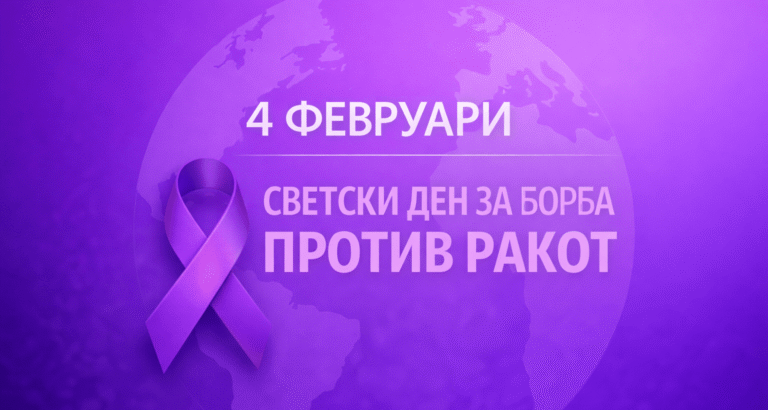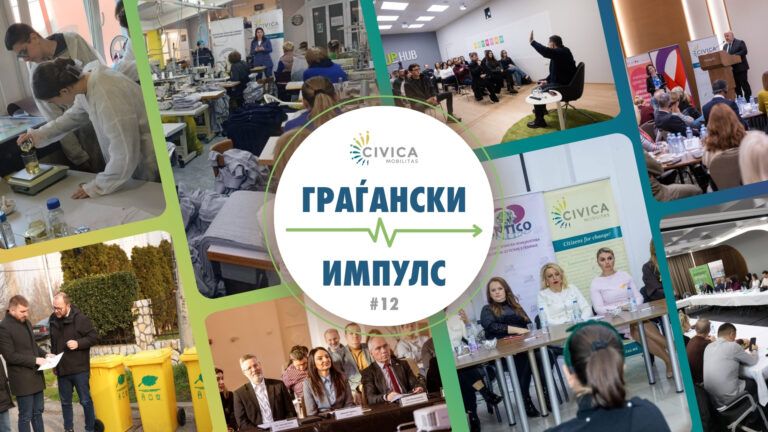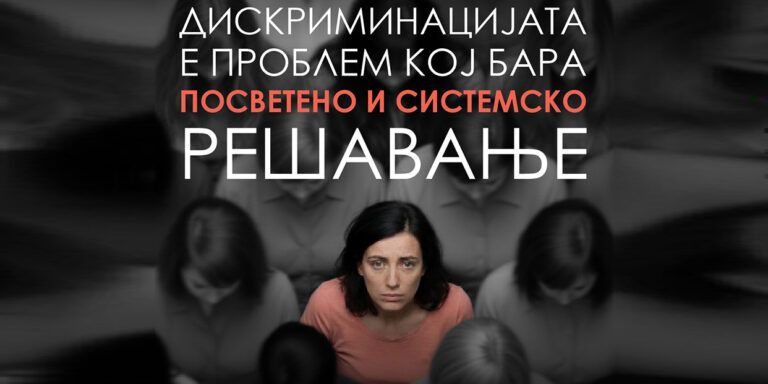How Zhivka Gjurchinoska from Tumchevishte village fights the gender stereotypes in agriculture
I wake up at 5 in the morning. First, I go to check the cattle and collect the milk. Then I return home, prepare breakfast for the family. And then, everything depends on the time of the year, in the field, in the house and around the house with agricultural activities, sowing, harvesting, spraying, gathering the crop, etc..” This is how the day unfolds of Živka Gjurchinoska from Tumcevishte, one of 130 registered female agriculturists in the country and founder of “Nasha tezga”, the platform on which she successfully markets and sells her products.
Živka’s family are migrant workers. Her encounter with agriculture happens when she gets married and accepts her husband’s family tradition. She learned everything from the beginning to milk, sow, reap and even drive a tractor. She liked what she was doing, she loved farming, but she was not satisfied with it. She invested a lot of effort and dedication, she studied, and with the new knowledge she wanted to modernize their production.

But it was not that easy, she had no land, no insurance, and no previous experience. In addition, stereotypes were another obstacle on the way. “I asked my father-in-law to register a piece of land in my name so that I could register as an agriculturist,” Zivka recalls. That way, she would have been able to pay her pension and health insurance. She was not very surprised with the answer: “My daughter in law, don’t you want to be laughed at by chance in the village?” Where has the bride’s father-in-law been seen registering land on her name?”. However, she was not discouraged and she managed to convince him and became the first registered female agriculturist in her village.
“Nasha Tezga” is a continuation of the struggle for “a place under the sun” for female agriculturists. That part of the story begins during the pandemic caused by Covid-19. The fear of physical contact has led women, led by the Rural Coalition, to take advantage of digitalization. “I connected with women from all over the country with whom we share work experiences, different recipes and have access to different markets. We are all different, yet united in the same platform, under the same brand, which we called ourselves “Nasha Tezga” because it is our product and our creation. It is the thread that connects us, something that is ours and in whose development, we invest ourselves. Through “Nasha Tezga” I made friends and I know that literally in every village I have an open door”, Zivka adds.

The demand for their products is increasing. They have regular as well as new customers thanks to the affirmation in the media that “Nasha Tezga” is supported by the Rural Coalition. From the soil to the online market the steps are not simple, but through the sharing of experiences and the cooperation with “Nasha Tezga” the road can be paved. “My sales have increased by 20% since we opened “Nasha Tezga.” I was promoted about it in the media and in civil society organizations. I am one of the first 250 women who used the first measure for direct support of female agriculturists as active owners of family farms. It was awarded through the Rural Development Program of the Ministry of Agriculture. We participated in its creation as female agriculturists and our views were conveyed and represented by the Rural Coalition as a member of the working group for gender equality within the Ministry.
“The 8th of March is good for the beginning of a new battle with the institutions, with the community, with the residents of the municipality, in the village”, says Živka and adds that it will be the same this year when the main topic is “Will women survive here?” the five minutes we get on the 8th of March, we should be loud, convincing, strong enough to say that unfortunately on many grounds we are still discriminated, that we still cannot go to certain places or certain institutions without a man, that we do not have maternity leave, that we don’t have a doctor in our village, we don’t have public transportation, we don’t have a kindergarten, we don’t have information and we live in a world in which men still dominate, and this is especially true for the agricultural sector,” she says.

And this year, together with the rural women’s lobby, they are part of the organization of the 8th of March’s march, as part of the Platform for Gender Equality. Her message is clear:
“Without us women as food producers, nothing is possible. If there is no food, there is nothing. Our role is unique and we are the leading force in the development of the village where we come from, the city where we sell our products, the state where we live. When we all understand this, we women will be recognized for our place and role in society, and development and overcoming stereotypes will come naturally, and only then will we be able to talk about a gender-equal society. This fight is not only mine, it is not only women’s but all of us as part of this society, and the young generations have the strength, power and knowledge to achieve it!”

The “Nasha Tezga” platform currently has 130 members from all over the country who offer agricultural products, traditional jewelry, fresh fruits and vegetables, honey and honey products, but also decorations, cakes, sweets made from natural ingredients provided by the villages in our country. Through the institutional support of Civica Mobilitas for the Rural Coalition, the women from the “Nasha Tezga” platform managed to produce the first packages of agricultural products. Unfortunately, the biggest challenges are still the present gender stereotypes and traditional norms in rural areas, says the Rural Coalition. “For years, we have not been able to move from 4-5% ownership of property in the entire country because the property is mostly assigned to the male members of the family, and the property is the basis from which they have to start in order to develop as an entrepreneur, to receive subsidies, to invest in their own economic strengthening and social inclusion in society”
With hope that the success story of Živka Gjurčinovska will reach a larger number of women, we jointly invite you to the 8th of March’s march “Will women survive here?” which will start at 6:00 p.m. on Philip II Square. More details about the event at the following link.







![Sre]ni praznici(2)](https://civicamobilitas.mk/wp-content/uploads/2025/12/sreni-praznici2-768x432.jpg)
